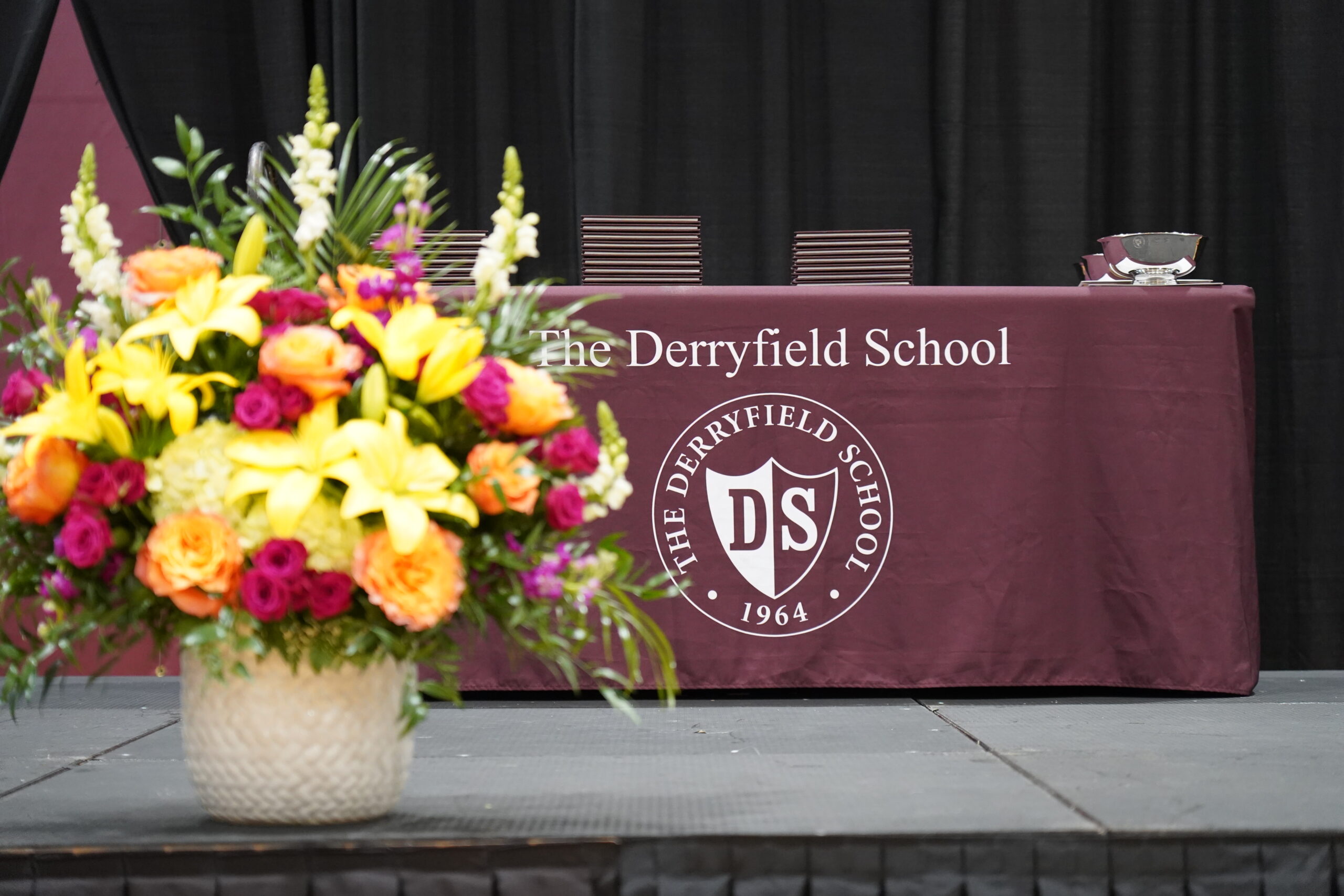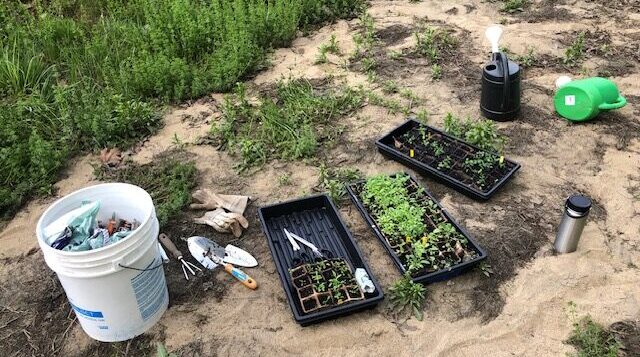Elaine Loft, Staff Writer
The Derryfield Advanced Topics (AT) program represents the pinnacle of skill development in each of the core academic disciplines. During the winter term, the AT chemistry class takes a deep dive into nuclear chemistry. Science department chair Mary Ann Watt tasks the students with creating a ten-minute podcast that would educate the public about an application of nuclear chemistry. Necessary components of the project include: an accurate scientific explanation of the science behind the application; an engaging story line and structure; an interview with an expert in the field.
For their podcast, Sam Chappell ‘24, Mia Chen ‘24, and Freddie Connarn ‘24 studied the health impacts of radiation. They interviewed Derryfield parent, Dr. Jesse Smith P’24, a radiologist at Concord Hospital. Using the bombing and aftermath of Hiroshima as an example, the students discussed with Dr. Smith the effects of radiation poisoning.
Juniors Ashwini Gurung ‘25 and Crow Bonnema ‘25, and senior Crystal Zhao ‘24, focused on the treatment of breast cancer. They interviewed Derryfield parent, Dr. Matthew Oliff P’27 &’28, a radiologist in Portsmouth, NH.
Kate McGee ‘25, Jerry Zhang ‘25, and Sophia Correnti ‘25 researched nuclear weapons. Their introduction referenced the recent award-winning movie, “Oppenheimer,” and considered questions such as, “Why did it take so many scientists to develop nuclear weapons?” and “What is the difference between a regular bomb and a nuclear device?”
Quinn McGinley ‘24, Holly Milford ‘24, and Tucker Rozen ‘24 investigated nuclear fusion. The trio asked, “How could the implementation of nuclear fusion have a significant effect on our future?” and “Do the benefits of nuclear fusion outweigh the high costs of the process?” They spoke with Professor Jean Barrette, a retired professor of physics from McGill University, to help ascertain whether nuclear fusion could be commercialized any time soon.
AT Chemistry covers selected topics with greater depth and detail, both conceptually and mathematically, including stoichiometry, nuclear chemistry, reaction kinetics, equilibrium, acid/base chemistry, and electrochemistry. Laboratory experiences are similar to those in a first-year college course.



